 W
WFrancisco Vicente Aguilera was a Cuban patriot born in Bayamo, Cuba on June 23, 1821. He had ten children with his wife Ana Manuela Maria Dolores Sebastiana Kindelan y Sanchez. He studied at the University of Havana receiving the degree of Bachelor of Laws.
 W
WRené Angélil, was a Canadian musical producer, talent manager and singer. He was the manager (1981–2014) and husband of singer Céline Dion.
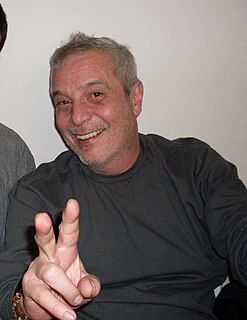 W
WCelso Ricardo Furtado de Carvalho, better known by his stage name Celso Blues Boy, was a Brazilian singer-songwriter and guitarist.
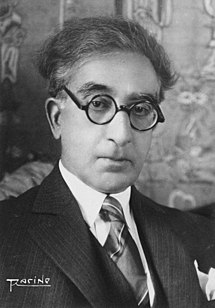 W
WConstantine Peter Cavafy was an Egyptiot Greek poet, journalist and civil servant. His consciously individual style earned him a place among the most important figures not only in Greek poetry, but in Western poetry as well.
 W
WAlexander Pavlovich Chekhov, was a Russian novelist, short story writer, essayist and memoirist, and the elder brother of Anton Chekhov.
 W
WLars Erik ("Lasse") Dahlquist was a Swedish composer, singer and actor. Many of his songs are among the most popular sing-along songs in Sweden, such as Oh boy oh boy oh boy and Gå upp och pröva dina vingar.
 W
WRobert Osbourne Denver was an American comedic actor who portrayed Gilligan on the 1964–1967 television series Gilligan's Island, and beatnik Maynard G. Krebs on the 1959–1963 series The Many Loves of Dobie Gillis.
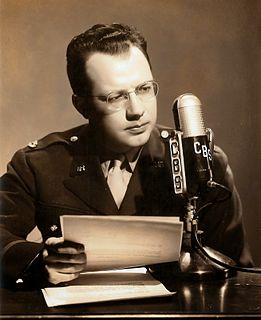 W
WWilliam Randall Downs, Jr. was an American broadcast journalist and war correspondent. He worked for CBS News from 1942 to 1962 and for ABC News beginning in 1963. He was one of the original members of the team of war correspondents known as the Murrow Boys.
 W
WAndrea Ferrari – later adopting the middle name "Carlo" – was an Italian Roman Catholic prelate who served as a cardinal and as the Archbishop of Milan from 1894 until his death. Ferrari was a well-regarded pastor and theologian who led two dioceses before being appointed to the prestigious Milanese archdiocese which he led until his death. But he was later accused of Modernism which led to a strained relationship with Pope Pius X who finally reconciled with Ferrari in 1912.
 W
WJosé A(gustín) Ferreyra, popularly known as "Negro Ferreyra", was an early Argentine film director, screenwriter and film producer. He was also sometimes credited as production designer.
 W
WFrederick III was German Emperor and King of Prussia for ninety-nine days in 1888, the Year of the Three Emperors. Known informally as "Fritz", he was the only son of Emperor Wilhelm I and was raised in his family's tradition of military service. Although celebrated as a young man for his leadership and successes during the Second Schleswig, Austro-Prussian and Franco-Prussian wars, he nevertheless professed a hatred of warfare and was praised by friends and enemies alike for his humane conduct. Following the unification of Germany in 1871 his father, then King of Prussia, became the German Emperor. Upon Wilhelm's death at the age of ninety on 9 March 1888, the thrones passed to Frederick, who had by then been German Crown Prince for seventeen years and Crown Prince of Prussia for twenty-seven years. Frederick was suffering from cancer of the larynx when he died, aged fifty-six, following unsuccessful medical treatments for his condition.
 W
WEduardo Gómez Manzano was a Spanish actor who was born in Madrid, Spain.
 W
WDexter Gordon was an American jazz tenor saxophonist. He was among the most influential early bebop musicians, which included other greats such as Charlie Parker, Dizzy Gillespie, and Bud Powell. Gordon's height was 6 feet 6 inches (198 cm), so he was also known as "Long Tall Dexter" and "Sophisticated Giant". His studio and performance career spanned over 40 years.
 W
WAuguste Joseph Alphonse Gratry was a French author and theologian.
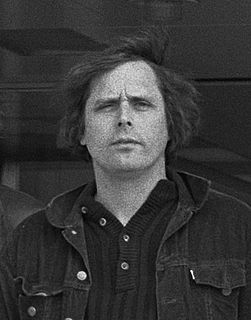 W
WRuud van Hemert was a Dutch film director known especially for (dark) comedy. In the 1970s he helped produce and direct TV shows on VPRO before starting a career as a film director.
 W
WHeinz Willy Gustav Hopf was a Swedish actor.
 W
WQuincy Howe was an American journalist, best known for his CBS radio broadcasts during World War II.
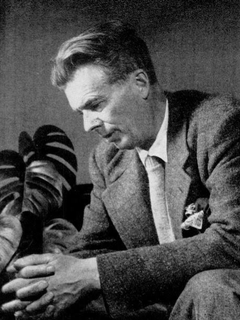 W
WAldous Leonard Huxley was an English writer and philosopher. He wrote nearly fifty books—both novels and non-fiction works—as well as wide-ranging essays, narratives, and poems.
 W
WJacek Marcin Kaczmarski (listen) was an iconic Polish singer, songwriter, poet and author.
 W
WYorozuya Kinnosuke (萬屋錦之介) was a Japanese kabuki actor. Born Kin'ichi Ogawa , son of kabuki actor Nakamura Tokizō III, he entered kabuki and became the first in the kabuki tradition to take the name Nakamura Kinnosuke. He took on his guild name (yagō) Yorozuya as his surname in 1971.
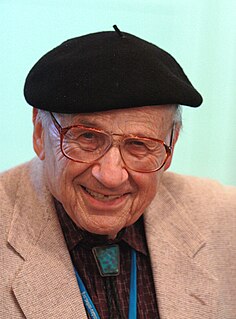 W
WWalter Kohn was an Austrian-American theoretical physicist and theoretical chemist. He was awarded, with John Pople, the Nobel Prize in Chemistry in 1998. The award recognized their contributions to the understandings of the electronic properties of materials. In particular, Kohn played the leading role in the development of density functional theory, which made it possible to calculate quantum mechanical electronic structure by equations involving the electronic density. This computational simplification led to more accurate calculations on complex systems as well as many new insights, and it has become an essential tool for materials science, condensed-phase physics, and the chemical physics of atoms and molecules.
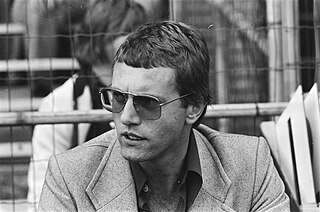 W
WFritz Korbach was a German professional football player and manager. He was particularly well known in the Netherlands, where he served eleven different teams, including FC Wageningen, FC Zwolle, FC Volendam, FC Twente, SC Cambuur, Go Ahead Eagles, SC Heerenveen, De Graafschap, Heracles Almelo, Sparta Rotterdam, Rohda Raalte and Harkemase Boys.
 W
WAbba Kovner was a Jewish Hebrew and Yiddish poet, writer and partisan leader. In the Vilna Ghetto, his manifesto was the first time that a target of the Holocaust identified the German plan to murder all Jews. His attempt to organize a ghetto uprising failed, but he fled into the forest, became a Soviet partisan, and survived the war. After the war, Kovner led a secretive organization that aimed to take revenge for the Holocaust by killing six million Germans, but he was arrested by the British before he could carry out his plan. He made aliyah in 1947. Considered one of the greatest poets of modern Israel, he received the Israel Prize in 1970.
 W
WPedro Segundo Mardones Lemebel was an openly gay Chilean essayist, chronicler, and novelist. He was known for his cutting critique of authoritarianism and for his humorous depiction of Chilean popular culture, from a queer perspective. He was nominated for Chile's National Literature Prize in 2014. He died of cancer of the larynx on 23 January 2015 in Santiago, Chile.
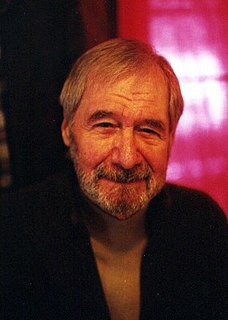 W
WEd McBain was an American author and screenwriter. Born Salvatore Albert Lombino, he legally adopted the name Evan Hunter in 1952. While successful and well known as Evan Hunter, he was even better known as Ed McBain, a name he used for most of his crime fiction, beginning in 1956. He also used the pen names John Abbott, Curt Cannon, Hunt Collins, Ezra Hannon, and Richard Marsten, amongst others. His 87th Precinct novels have become staples of the police procedural genre.
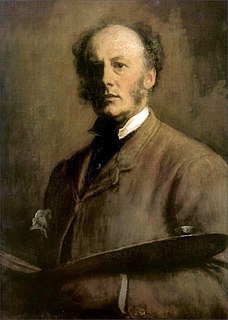 W
WSir John Everett Millais, 1st Baronet, was an English painter and illustrator who was one of the founders of the Pre-Raphaelite Brotherhood. He was a child prodigy who, aged eleven, became the youngest student to enter the Royal Academy Schools. The Pre-Raphaelite Brotherhood was founded at his family home in London, at 83 Gower Street. Millais became the most famous exponent of the style, his painting Christ in the House of His Parents (1849-50) generating considerable controversy, and he produced a picture that could serve as the embodiment of the historical and naturalist focus of the group, Ophelia, in 1851–52.
 W
WMasa Nakayama was a Japanese politician, who was the first woman appointed to the Cabinet of Japan when she became Minister of Health and Welfare in 1960.
 W
WAhuva Ozeri was an Israeli singer, songwriter and composer. She released 20 albums over her four-decade career. According to The Times of Israel, she was "a pioneer of Israeli music".
 W
WKonrad "Conny" Plank was a West German record producer and musician born in Hütschenhausen. His innovative work as a sound engineer and producer in Germany's krautrock and kosmische music scenes helped to shape postwar European popular music. Plank oversaw recordings such Neu!'s self-titled debut (1972), Kraftwerk's Autobahn (1974), and Harmonia's Deluxe (1975). He later produced for new wave acts such as Eurythmics and Ultravox.
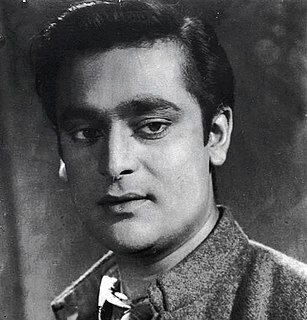 W
WRehman was an Indian film actor whose career spanned from the late 1940s through to the late 1970s. He was an integral part of the Guru Dutt team, and most known for his roles in films such as Pyar ki Jeet, Badi Behen, Pyaasa (1957), Chaudhvin Ka Chand (1960), Sahib Bibi Aur Ghulam (1962), Dil Ne Phir Yaad Kiya, Chhoti Bahen, and Waqt (1965).
 W
WSefi Rivlin was an Israeli actor and comedian.
 W
WSarah "Sally" Tack Ryan was an American artist and sculptor best known for portrait style pieces and her association with the Garman Ryan Collection.
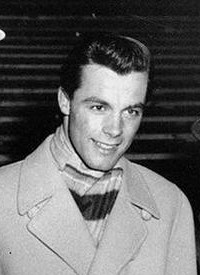 W
WAnton Engelbert "Toni" Sailer was an Austrian alpine ski racer, considered among the best in the sport. At age 20, he won all three gold medals in alpine skiing at the 1956 Winter Olympics. He nearly duplicated the feat at the 1958 World Championships with two golds and a silver. He also won world titles both years in the combined, then a "paper" race, but awarded with medals by the International Ski Federation (FIS).
 W
WTatsuhiko Shibusawa was the pen name of Shibusawa Tatsuo, a novelist, art critic, and translator of French literature active during Shōwa period Japan. Shibusawa wrote many short stories and novels based on French literature and Japanese classics. His essays about black magic, demonology, and eroticism are also popular in Japan.
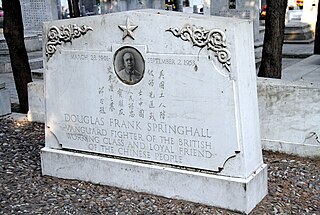 W
WDouglas Frank Springhall, known as Dave Springhall, was a British communist activist.
 W
WMary Esther Wells was an American singer, who helped to define the emerging sound of Motown in the early 1960s. Along with The Supremes, The Miracles, The Temptations, and the Four Tops, Wells was said to have been part of the charge in black music onto radio stations and record shelves of mainstream America, "bridging the color lines in music at the time."